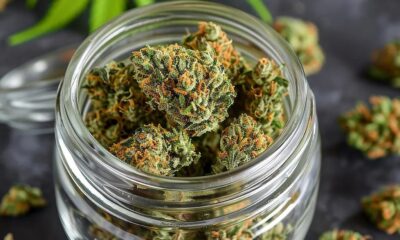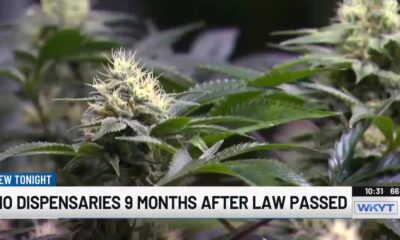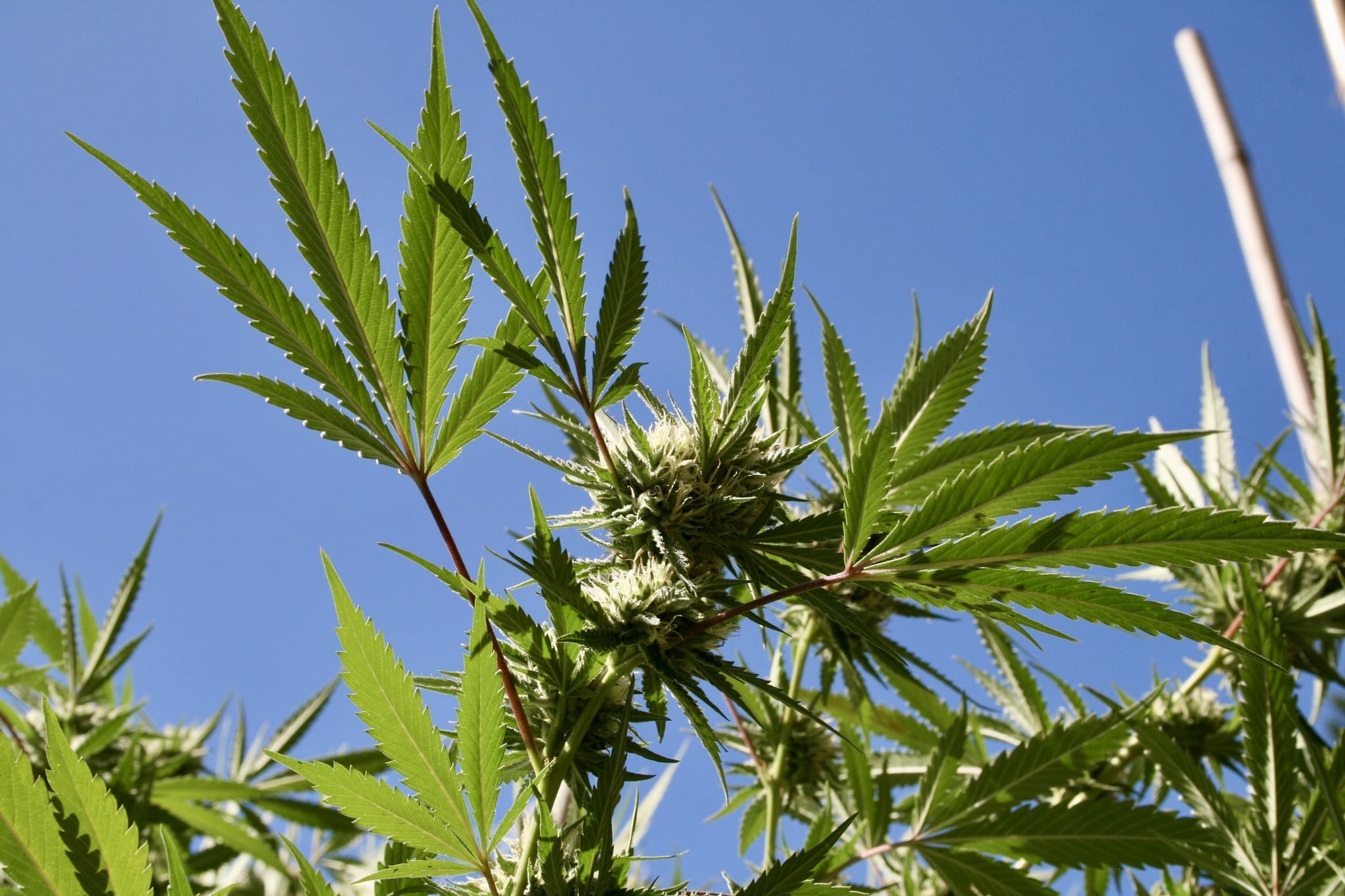featured
In Search of Morocco’s Hashish Heritage
Published
3 weeks agoon

I landed in Marrakesh after a five-hour flight from Stockholm. It’s late afternoon in October, the light was fading, the air calm, almost welcoming. That illusion lasted thirty seconds. I met Lahcen, our rental guy, grabbed the keys, and dove straight into one of the most chaotic traffic jams I’ve ever seen.
I hadn’t driven a stick in ten years. Between relearning the clutch and trying not to crash into scooters, donkeys, and cars jammed into narrow streets, the first hour in Morocco felt like a stress test. GPS glitched out, directions blurred, and I was swallowed whole by the madness. This was exactly what I came for—total immersion without warning. But at least I wasn’t alone.
Somehow, we clawed our way through. A few scraps of French—à droite, à gauche—and the kindness of strangers pointed us toward our Airbnb. We kept repeating the directions until we saw exactly what Lahcen had described: “a big plaza full of kids playing soccer and a gate at the back.” Miraculously, we made it.

Marrakesh Score
Like Lahcen said, the moment I stepped out of the car, kids appeared, offering to guide us to the door for a tip. Within seconds, one of them flashed a thumb-sized ball of hash.
“Ten euros,” he said. I hesitated. He dropped to five.
“I’ll take the five grams for twenty,” I countered.
“I need to go get it. It will be another 15 minutes after we get to the hotel.”
We set up to meet an hour later so we could check in and grab food. He dropped us off at our stay and disappeared in the crowd. We were staying in a riad turned Airbnb. Riads are classic Moroccan buildings constructed around a central courtyard. Most rooms face towards that central garden. This one was owned by Sophie, a French immigrant who embodied laissez-faire—freedom and indifference balanced in one person.
After a quick tagine dinner, we stopped by a souvenir stand and got a small metal sebsi, the traditional Moroccan hash pipe. Metal versions are mostly engraved, seven to nine inches long; wooden ones are made of two or three sections, nine or ten inches each, connected with a clay bowl at the end.
Walking back, the kid was waiting. He pulled out a dark little brick that looked and felt right. A quick bubble test, and the deal was sealed. Moroccan hash isn’t your 90–120u full melt by any means, but nobody expected that. Dropped some in the pipe, lit up, and it melted gently into smoke. Strong earthy wax with a faded pine-spice taste. I used to get it when I first moved to New York. It was the early 2000’s and that first hit brought me back to those days. What a great start.
As the night settles in Marrakesh, you can see people smoking their spliffs in the alleys everywhere you look. Small flames slowly heat up the hash as it gets rolled into cigarettes.
Scoring hash in one hour after getting out of the airport felt pretty fortunate, but by the tenth offer that night it was obvious: hash was everywhere. Not hidden, not taboo—just part of the culture.
My wife has always wanted to visit the Sahara. Her wish to see a sunrise by the dunes, and my curiosity for all things weed, landed us in that overheated, motionless car. A dichotomy of panic and joy leading us into the streets. Our great shark hunt could’ve ended right there—just two idiots abroad, stranded and lost—if we didn’t get our shit together fast.

Blue Pearl
For the next two weeks, we fully embraced our time on the road. A night in the desert, camel rides, dune surfing, and the feeling of overpaying for a bottle of argon oil were all part of the tourist experience. With the right mindset, even carpet shopping is a thrill. But as we closed in on the Rif, all I wanted was a farm. For a while, I’d been shooting 30-light indoor rooms around Santa Rosa, in California—but visiting a Moroccan hash farm was the achievement I’d been chasing for years..
Finally we arrived in Chefchaouen. The town is a living postcard in the Rif Mountains, social media-ready in its blue and white paint. Known as the Blue Pearl of Morocco, it’s more than just a pretty face: the region produces roughly a third of Morocco’s cannabis crop—around ten percent of the world’s hash supply.
At check-in, a young guy named Omar appeared, mid-20s, sharp grin, plenty of local knowledge. He pointed out the avoidable gimmicks, poured the requisite mint tea, and accepted a few hits from a rosin pen. Conversation quickly shifted into stoner territory.
I asked if he knew a guide who could take us to a hash farm. He laughed, leaned back, and pointed to himself. “Omar here is your guide.”
Perfect.
“They’re making it right now,” he said. “Harvest was three weeks ago. Kief is on the table. Tomorrow afternoon works—does that work for you?”
It worked for me.
The Farm
The next morning, we met up in the lobby, and it seemed that the entire hotel staff knew what was going on. They literally gave me an extra hearty breakfast so we could smoke more. Too funny. My wife befriended another couple as I was loading the car with the photo gear. The guy asked so many questions that we just offered him the last seat in the car. Defying his partner’s daring eyes, he took the offer.
The drive into the mountains would take twenty minutes, nothing more. Incredible: twenty minutes from hotel to hash farm. During the drive, we were trading a bizarre compilation of stories from Morocco, the Philippines, Israel, and Brazil. A revenant of old weed memories coming together. The chatter died when we saw a police car at a roundabout.
“They’re here for the trucks, not tourists,” Omar said. He was right.
At the gate, we met Elhad, the eldest brother of three. He ran the farm, which grew far more than cannabis—beets, potatoes, olives, oranges. All organic, though they’d never call it that. Around here, farming is just farming. No need for up-charging labels when the old way is the whole right way.
Elhad led us to a separate section of their compound. Inside a small and underlit hut, he had about 150 pounds of weed. Some were still drying in a well-stashed pile. The dried material was in these three huge plastic tube bags, with about 40-45 pounds each. Traditionally, male and female plants are not separated during the season, and the buds are full of seeds. Forget rolling a joint—this weed was grown for hash, the seeds saved for next season. If anyone brought this to a smoke sesh, you’d slap them. But here, it was perfect raw material.
The air was thick, basement-dry room feel, unmistakable smell. Another 2 pounds of kief was casually lying around in between some beets and potatoes. Just like another crop. We went over the process of making hash a couple of times and sat down to smoke, talk, and have mint tea. It was about time to get to work.



Making Hash
Hash-making here hasn’t changed in generations. A mesh screen is stretched tight over a big bowl. A small wooden stick is used to stretch the net and then tied to the bottom of the bowl. Dried cannabis is handbroken and placed on top of the mesh. Heavy-duty plastic is used to cover the pile of weed, and that plastic gets tightened by elastic bands around the bowl. The farmers take two sticks and beat them into this contraption like a drum.



After a few minutes, golden dust—kief—sifts through the mesh, collecting in the container below. Releasing the covers disperses terpenes all over the room. The amount of time and strength used in the process differs for each farmer. Like any classic dish, there’s a general way to make it, but every family has its own style.
The result looks exactly like the powder at the bottom of your grinder, but fresh, potent, and twenty times the volume. Later, it’s pressed into bricks ranging from 100 grams to two pounds.
After we were done, Omar and Elhad smoked theirs in long sebsi pipes, mixed with taba—a local herb with a tobacco-like taste. Not my style. I stuck to the pure stuff. Omar explained to us that local women don’t socially consume hash. My wife didn’t want to offend anyone, but she ripped some huge clouds with those dudes. That was an image I’ll never forget.
Soon we were all stoned, half-watching a soap opera, tearing bread into pieces, dipping it in olive oil from their groves. We spent more time talking than taking pictures. Elhad told me how making hash and growing cannabis was taught to him by an uncle. In return, I tried to explain what a COA is.
Ruminating
On the silent drive back, the weight of the experience settled in. A conversation over tea had turned into a guided trip to a hash farm. The local hospitality: breakfast prepared with extra care, tea poured in abundance, and knowledge shared without hesitation.
What I expected as a sinister adventure turned out to be some kind of eccentric tourism. Less outlaw explorer, more privileged guest. We safely navigated the mountain roads back to our hotel. Tired like kids after a long day in the park, we parted ways.
Looking back, it still blows me away that hashish is part of the local daily life.
The real connections happened in the search, not the arrival. From Marrakesh’s alleys to Chefchaouen’s blue streets and mountain farms, Morocco’s relationship with hashish revealed itself in a deeper way no tour guidebook could describe. The knowledge was passed like family secrets from one generation to the next. An unwritten way to preserve history.
Hash is not some illicit side business or someone’s unrealized gonzo fantasy—it is culture and heritage. And for a couple of hours on a sunny October afternoon, I was invited in.

Author: mscannabiz.com
MScannaBIZ for all you Mississippi Cannabis News and Information.
You may like
-


Federal Marijuana Legalization Bill Deserves Lawmakers’ Support, Letter From ACLU And Other Groups Says
-


Watertown could create new rules for cannabis shops
-


Rhode Island Opens Applications for 24 Adult-Use Dispensary Licenses
-


Kentucky still waiting on medical marijuana dispensaries 9 months after law passed
-


Can LSD Battle Anxiety? The Answer Is Yes, According to Science
-


Six hurt in shooting at marijuana event in SF's Bayview
featured
Federal Marijuana Legalization Bill Deserves Lawmakers’ Support, Letter From ACLU And Other Groups Says
Published
1 hour agoon
September 15, 2025
A coalition of drug policy reform and civil rights organizations sent letter urging members of the U.S. House of Representatives to cosponsor a recently filed bill to federally legalize marijuana and promote equity.
The letter, led by the Drug Policy Alliance (DPA), expresses support for the Marijuana Opportunity, Reinvestment and Expungement (MORE) Act, which was reintroduced by Rep. Jerrold Nadler (D-NY) and about three dozen cosponsors late last month.
This marks the fourth session in a row that Nadler has put forward the proposal. It passed the House twice under Democratic control while the sponsor served as chairman of the Judiciary Committee, but it did not advance last session with Republicans in the majority.
“The MORE Act is the leading comprehensive marijuana reform bill in the House that ends federal prohibition, addresses the collateral consequences of federal marijuana criminalization, and takes steps to ensure the regulated marketplace is diverse and inclusive,” the letter—which was also signed by groups such as the ACLU, National Association of Criminal Defense Lawyers, National Association of Social Workers, Service Employees International Union and Southern Poverty Law Center—says.
“For generations, marijuana’s placement on the [Controlled Substances Act, or CSA] has disproportionately inflicted harm upon communities of color and poor people,” the groups wrote.
They noted that the Trump administration is actively considering a proposal to simply reschedule cannabis, which they described as “a policy that would continue federal cannabis criminalization and its harm.”
With that reform pending, it’s “more important than ever for Congress to advance comprehensive legislation to deschedule marijuana from the CSA,” the letter says. “To be clear, as long as marijuana remains anywhere in the CSA, it will still be criminalized at the federal level.”
“Recent news reports have suggested that President Trump may move marijuana to Schedule III of the CSA. While this move would eliminate an unfair tax penalty on the marijuana industry and would be of symbolic importance by recognizing that marijuana has accepted medical use, little else would change. In fact, rescheduling marijuana from Schedule I to Schedule III of CSA will maintain the criminal penalties and collateral consequences that are in effect today. To fully address the conflict between state and federal laws, marijuana must be descheduled from the CSA.”
Other signatories on the letter include Cannabis Regulators of Color Coalition (CRCC), Doctors for Drug Policy Reform, JustLeadershipUSA, Last Prisoner Project (LPP), Law Enforcement Action Partnership (LEAP), Lawyers’ Committee for Civil Rights Under Law, Minority Cannabis Business Association (MCBA), Mission Green, NORML, Students for Sensible Drug Policy (SSDP), Supernova Women and more.
Here are details about the key provisions of the MORE Act:
- The bill would deschedule marijuana by removing it from the list of federally banned drugs under the CSA. However, it would not require states to legalize cannabis and would maintain a level of regulatory discretion up to states.
- Marijuana products would be subject to a federal excise tax, starting at five percent for the first two years after enactment and rising to eight percent by the fifth year of implementation.
- Nobody could be denied federal public benefits based solely on the use or possession of marijuana or past juvenile conviction for a cannabis offense. Federal agencies couldn’t use “past or present cannabis or marijuana use as criteria for granting, denying, or rescinding a security clearance.”
- Noncitizens could not be penalized under federal immigration laws for certain cannabis activity after the enactment of the legislation.
- The bill creates a process for expungements of non-violent federal marijuana convictions.
- Tax revenue from cannabis sales would be placed in a new “Opportunity Trust Fund.” Half of those tax dollars would support a “Community Reinvestment Grant Program” under the Justice Department, 10 percent would support substance misuse treatment programs, 40 percent would go to the federal Small Business Administration (SBA) to support implementation and a newly created equitable licensing grant program.
- The Community Reinvestment Grant Program would “fund eligible non-profit community organizations to provide a variety of services for individuals adversely impacted by the War on Drugs…to include job training, reentry services, legal aid for civil and criminal cases (including for expungement of cannabis convictions), among others.”
- The program would further support funding for substance misuse treatment for people from communities disproportionately impacted by drug criminalization. Those funds would be available for programs offering services to people with substance misuse disorders for any drug, not just cannabis.
- While the bill wouldn’t force states to adopt legalization, it would create incentives to promote equity. For example, SBA would facilitate a program to providing licensing grants to states and localities that have moved to expunge records for people with prior marijuana convictions or “taken steps to eliminate violations or other penalties for persons still under State or local criminal supervision for a cannabis-related offense or violation for conduct now lawful under State or local law.”
- The bill’s proposed Cannabis Restorative Opportunity Program would provide funds “for loans to assist small business concerns that are owned and controlled by individuals adversely impacted by the War on Drugs in eligible States and localities.”
- The comptroller general, in consultation with the head of the U.S. Department of Health and Human Services (HHS), would be required to carry out a study on the demographics of people who have faced federal marijuana convictions, “including information about the age, race, ethnicity, sex, and gender identity.”
- The departments of treasury, justice and the SBA would need to “issue or amend any rules, standard operating procedures, and other legal or policy guidance necessary to carry out implementation of the MORE Act” within one year of its enactment.
- Marijuana producers and importers would also need to obtain a federal permit. And they would be subject to a $1,000 per year federal tax as well for each premise they operate.
- The bill would impose certain packaging and labeling requirements.
- It also prescribes penalties for unlawful conduct such as illegal, unlicensed production or importation of cannabis products.
- The Treasury secretary would be required to carry out a study “on the characteristics of the cannabis industry, with recommendations to improve the regulation of the industry and related taxes.”
- The Bureau of Labor Statistics (BLS) would be required to “regularly compile, maintain, and make public data on the demographics” of marijuana business owners and workers.
- Workers in “safety sensitive” positions, such as those regulated by the Department of Transportation, could continue to be drug tested for THC and face penalties for unauthorized use. Federal workers would also continue to be subject to existing drug testing policies.
- References to “marijuana” or “marihuana” under federal statute would be changed to “cannabis.” It’s unclear if that would also apply to the title of the bill itself.
Getting a bill like the MORE Act through the GOP-controlled House and Senate is a tall task, however. And while Trump previously endorsed a Florida legalization ballot initiative, he’s given little indication he’d be willing to end prohibition altogether at the federal level.
A pending proposal to simply move cannabis from Schedule I to Schedule III under the CSA is still in flux—though the president did recently say a decision was imminent.
—
Marijuana Moment is tracking hundreds of cannabis, psychedelics and drug policy bills in state legislatures and Congress this year. Patreon supporters pledging at least $25/month get access to our interactive maps, charts and hearing calendar so they don’t miss any developments.![]()
Learn more about our marijuana bill tracker and become a supporter on Patreon to get access.
—
Numerous voices within Trump’s circles have expressed differing opinions on the reform.
Most recently, for example, Ben Carson, Trump’s former secretary of the Department of Housing and Urban Development (HUD), said a move to reschedule marijuana would play into plots to “destroy this country.”
Trump’s former press secretary Sean Spicer and his long-time advisor Roger Stone recently traded diverging takes on the prospect of the administration moving forward on marijuana rescheduling.
Stone separately made the case for reform in an op-ed for Marijuana Moment last month.
Retired boxer Mike Tyson, meanwhile, recently spoke about the need for federal marijuana rescheduling on a podcast hosted by the wife of White House Deputy Chief of Staff for Policy Stephen Miller—saying he’s expecting “good news” on the issue soon.
In June, the retired boxer also took to Fox News and delivered a message to the president, urging him to reschedule, and ultimately legalize, marijuana.
That interview came days after Tyson led a letter alongside other professional athletes and celebrities promoting cannabis reform that was sent to Trump, calling for rescheduling marijuana, expanding clemency and allowing licensed cannabis businesses to access the banking system.
Meanwhile, Trump’s former senior advisor Kellyanne Conway has been the “biggest champion” of marijuana rescheduling within the president’s “inner circle,” a GOP congressman recently told Marijuana Moment.
Photo courtesy of Brian Shamblen.

Author: mscannabiz.com
MScannaBIZ for all you Mississippi Cannabis News and Information.
featured
Rhode Island Opens Applications for 24 Adult-Use Dispensary Licenses
Published
2 hours agoon
September 15, 2025
[PRESS RELEASE] – WARWICK, R.I., Sept. 12, 2025 – The Cannabis Control Commission (CCC) opened the application period for adult-use cannabis retail licenses, marking the beginning of the largest expansion to Rhode Island’s cannabis industry. The commission is authorized under the Rhode Island Cannabis Act to license up to 24 retail establishments statewide, divided equally across six geographic zones, making this announcement a defining moment in shaping the state’s cannabis marketplace.
“Today’s announcement represents years of work, collaboration and preparation to ensure Rhode Island has a cannabis marketplace that is safe, transparent, and equitable,” CCC Chairperson Kim Ahern said. “The release of this application and launch of our submission portal is not only about opening doors for businesses but about creating meaningful opportunities for Rhode Islanders while keeping public health and public safety at the center of everything we do.”
With only 24 retail licenses available statewide, the launch of the application process is expected to draw significant interest from prospective applicants. Together with the Social Equity Applicant Status Certification Portal, which opened in August, the application process reflects the CCC’s deliberate steps toward building a cannabis industry that prioritizes economic opportunity, equity and fairness in Rhode Island.
“Rhode Island’s cannabis market is poised for growth, and this application is helping us do exactly that,” Gov. Dan McKee said. “As we expand the cannabis industry here in the Ocean State, we’re opening the doors to new investment, new good-paying jobs, and new opportunities for our economy.”
Adult-use retail licenses will authorize sales of cannabis products to adults 21 and older. By releasing the application and opening the submission portal simultaneously, the commission is providing applicants with a transparent process while reinforcing its commitment to accountability and access.
“Today’s release of the adult-use retail license application reflects the commission’s commitment to equity and accountability,” Commissioner Layi Oduyingbo said. “This framework provides applicants with the information they need while reinforcing our responsibility to safeguard public health and consumer safety.”
Commissioner Robert Jacquard said, “The commission aims to make this application process as business-friendly as possible, while upholding standards that will protect public health.”
To ensure the process is fair and accessible, the commission and Cannabis Office will provide technical assistance resources and ongoing guidance for prospective applicants. Applications will be accepted until 4 p.m. on Dec. 29, 2025.
“This is a milestone that reflects the dedication and perseverance of so many people,” Cannabis Office Administrator Michelle Reddish said. “From lawmakers and advocates to community members and our dedicated staff, countless individuals have helped build the foundation for this moment. By publishing the application today, we are taking a historic step toward building a cannabis marketplace that serves consumers, supports equity and advances public health in Rhode Island.”
The adult-use retail license application is available on the commission’s website at www.ccc.ri.gov/auapp.

Author: mscannabiz.com
MScannaBIZ for all you Mississippi Cannabis News and Information.
featured
Can LSD Battle Anxiety? The Answer Is Yes, According to Science
Published
3 hours agoon
September 15, 2025
Hands down, one of the drugs that has received the worst press in the decades marked by the War on Drugs has been LSD. All sorts of things have been said about this molecule: that it drives you crazy, or suicidal, that it remains stored in your body forever, that it irreparably damages the brain… Fortunately, we now have professionals investigating the matter, with a scientific perspective rather than a moralistic or prohibitionist one.
One of the latest findings on the subject seems to directly contradict one of the great myths about LSD: instead of leading to insanity, this compound could reduce anxiety. This is according to a study by Mind Medicine (MindMed) Inc., a biopharmaceutical company that has been researching psychedelic compounds for mental health for many years. While the preliminary results were released in 2022, they were officially published this month in the Journal of the American Medical Association.
This isn’t the first time MindMed has embarked on studying this topic: it had already achieved positive results with LSD for anxiety on another occasion. In fact, the FDA granted Breakthrough Therapy designation for generalized anxiety disorder (GAD) to the company’s proprietary drug candidate, MM120, a pharmacologically optimized formulation of LSD.
LSD and Anxiety: What the MindMed Study Says
The company conducted a multicenter, randomized, double-blind, placebo-controlled Phase 2b study at 22 outpatient psychiatric research centers in the US. The effects of a single dose of MM120 (lysergide D-tartrate, LSD) were analyzed in 198 adults with moderate to severe generalized anxiety disorder (GAD). Participants experienced sustained improvements in their condition over the 12-week observation period.
According to the company’s press release, this is the first randomized, placebo-controlled trial evaluating a single treatment at four dose levels (25, 50, 100, or 200 µg), without any psychotherapeutic intervention.
The optimal dose of MM120 was determined at 100 µg. This demonstrated a “clinically and statistically significant improvement vs. placebo, and a 65% clinical response rate and 48% clinical remission rate” at the end of the experiment.
Likewise, tolerance to the medication was positive, with the expected adverse effects of an LSD experience remaining mild to moderate and lasting only one day.
During the study, participants receiving medication for their condition had to discontinue such treatment under the supervision of the study professionals. Furthermore, on the day of dosing, they were offered “standardized music and eyeshades and could lie down, move freely around the room, read, write, or draw.” It should be noted that the study protocol explicitly prohibited participation in psychotherapy.
Dr. Maurizio Fava, one of the study’s authors, stated that “this study is a true turning point in the field of psychiatry… For the first time, LSD has been studied with modern scientific rigor, and the results are both clinically meaningful and potentially paradigm-shifting for the treatment of GAD. GAD affects 26 million adults in the U.S., yet no new medications have been approved since 2007—and first-line treatments fail 50% of patients.”
Thus, scientific innovation continues to advance against the willful ignorance of prohibitionists, working tirelessly to ensure patients have access to the relief that traditional therapies fail to provide.
This article was first published on El Planteo.

Author: mscannabiz.com
MScannaBIZ for all you Mississippi Cannabis News and Information.

Federal Marijuana Legalization Bill Deserves Lawmakers’ Support, Letter From ACLU And Other Groups Says

Watertown could create new rules for cannabis shops

Rhode Island Opens Applications for 24 Adult-Use Dispensary Licenses

Kentucky still waiting on medical marijuana dispensaries 9 months after law passed

Can LSD Battle Anxiety? The Answer Is Yes, According to Science

Six hurt in shooting at marijuana event in SF's Bayview

Kentucky Medical Marijuana Dispensaries Should Be Stocked With Products Ready For Sale By Next Month, Top State Official Says

Deputies: 3,500 child sex abuse images, marijuana grow operation found in NC home raid

Regulators Ready to Enforce Cannabis Laws on Hemp THC Retailers in Maryland

California reaps over $250 million from 2nd Quarter cannabis sales

Meet the World’s First Cannabis Rugby Team: Crewmen 7’s Tackle Stigma Head-On

Texas Supreme Court Refuses To Take Up Marijuana Case Challenging State’s Rejection Of Local Decriminalization Law

California Passes Bill to Ban Intoxicating Hemp Products Outside Cannabis Market

Pending Federal Hemp Legislation Could Reshape The Legal Industry By Banning Some Products (Op-Ed)

Verano Proposes to Redomicile Parent Company From British Columbia to Nevada

8,000 cannabis plants seized from illegal Bradford grow-op

New York Lawmakers Schedule Psychedelics-Focused Hearing To Discuss ‘Medicinal Value And Risks’ Of Psilocybin

Curaleaf Opens Cannabis Dispensaries in Florida, Ohio

How to Protect Your Outdoor Cannabis Crops From Pests

Feds provide anti-cannabis group a platform to bash legalization (Newsletter: September 15, 2025)

Dozen arrested after south Mississippi bust for illegal sales to underage customers

The Toking Traveler: Why Amsterdam Weed Is Mostly Boof

Arkansas Medical Marijuana Sales Are On Track To Set A New Annual Record

When Cannabis Brands Blur Into Youth Culture, Regulators Notice: Lessons From Tobacco’s Past

Alert: Department of Cannabis Control updates data dashboards with full data for 2023

Connecticut Appoints The US’s First Cannabis Ombudsperson – Yes there is a pun in there and I’m Sure Erin Kirk Is Going To Hear It More Than Once!

5 best CBD creams of 2024 by Leafly

EU initiative begins bid to open access to psychedelic therapies
New Study Analyzes the Effects of THCV, CBD on Weight Loss

Free delta-9 gummies from Bay Smokes

Discover New York’s dankest cannabis brands [September 2024]

5 best autoflower seed banks of 2024 by Leafly

Press Release: CANNRA Calls for Farm Bill to Clarify Existing State Authority to Regulate Hemp Products

Curaleaf Start Process Of Getting Their Claws Into The UK’s National Health System – With Former MP (Resigned Today 30/5/24) As The Front Man

May 2024 Leafly HighLight: Pink Runtz strain

Local medical cannabis dispensary reacts to MSDH pulling Rapid Analytics License – WLBT

Recreational cannabis on ballot for third time in South Dakota

5 best THC drinks of 2024 by Leafly

Horn Lake denies cannabis dispensary request to allow sale of drug paraphernalia and Sunday sales | News

Mississippi city official pleads guilty to selling fake CBD products

6 best CBD gummies of 2024 by Leafly

Nevada CCB to Accept Applications for Cannabis Establishments in White Pine County – “Only one cultivation and one production license will be awarded in White Pine County”

The Daily Hit: October 2, 2024

5 best delta-9 THC gummies of 2024 by Leafly

Weekly Update: Monday, May 13, 2024 including, New Guide for Renewals & May Board meeting application deadline

PRESS RELEASE : Justice Department Submits Proposed Regulation to Reschedule Marijuana

5 best THCA flower of 2024 by Leafly

People In This State Googled ‘Medical Marijuana’ The Most, Study Shows
Trending
-

 California Cannabis Updates1 year ago
California Cannabis Updates1 year agoAlert: Department of Cannabis Control updates data dashboards with full data for 2023
-

 Breaking News1 year ago
Breaking News1 year agoConnecticut Appoints The US’s First Cannabis Ombudsperson – Yes there is a pun in there and I’m Sure Erin Kirk Is Going To Hear It More Than Once!
-

 best list1 year ago
best list1 year ago5 best CBD creams of 2024 by Leafly
-

 Business12 months ago
Business12 months agoEU initiative begins bid to open access to psychedelic therapies
-

 cbd1 year ago
cbd1 year agoNew Study Analyzes the Effects of THCV, CBD on Weight Loss
-

 Bay Smokes1 year ago
Bay Smokes1 year agoFree delta-9 gummies from Bay Smokes
-

 cannabis brands12 months ago
cannabis brands12 months agoDiscover New York’s dankest cannabis brands [September 2024]
-

 autoflower seeds12 months ago
autoflower seeds12 months ago5 best autoflower seed banks of 2024 by Leafly




